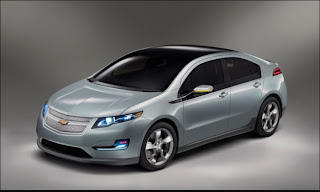Hybrid Cars - Payback
Do you like this little car - You better if you buy it. At recent
prices payback time in about 27 years.
Opting for models that promise better mileage through new
technologies does not necessarily save money, according to
data compiled for The New York Times by TrueCar.com, an
automotive research Web site. Except for two hybrids, the
Prius and Lincoln MKZ, and the diesel-powered Volkswagen
Jetta TDI, the added cost of the fuel-efficient technologies
is so high that it would take the average driver many years
— in some cases more than a decade — to save money over
comparable new models with conventional internal-combustion
engines. That is true at today’s pump prices, around $4, and
also if gas were to climb to $5 a gallon, the data shows.
Gas would have to approach $8 a gallon before many of the
cars could be expected to pay off in the six years an
average person owns a car.
And of course, there’s the Volt:
The Volt, which cost nearly $40,000 before a $7,500 federal
tax credit, could take up to 27 years to pay off versus a
Chevrolet Cruze, assuming it was regularly driven farther
than its battery-only range allows. The payback time could
drop to about eight years if gas cost $5 a gallon and the
driver remained exclusively on battery power [a 25-50 mile
range]. The Lundberg Survey, which tracks fuel prices, said
in March that gas prices would need to reach $12.50 a gallon
for the Volt to make sense purely on financial terms.




Comments
Post a Comment